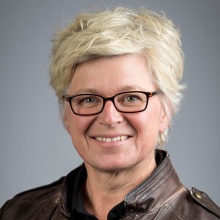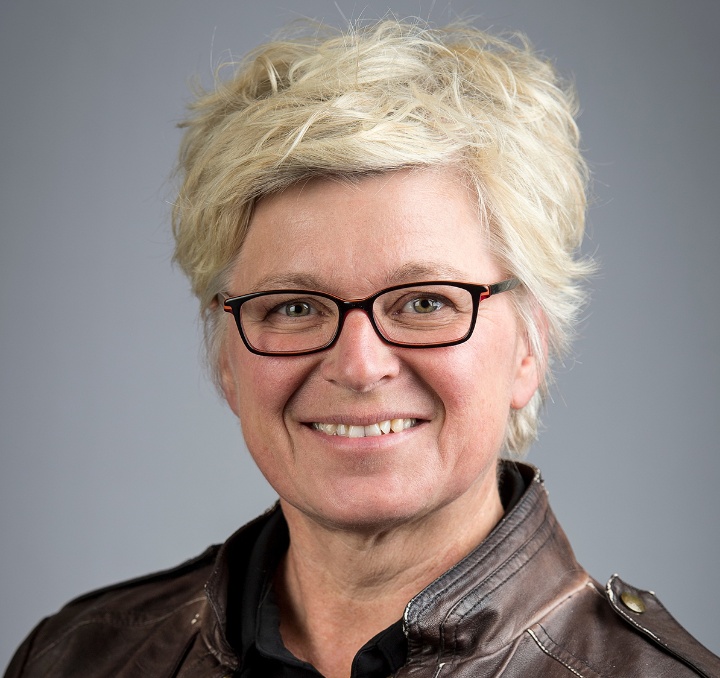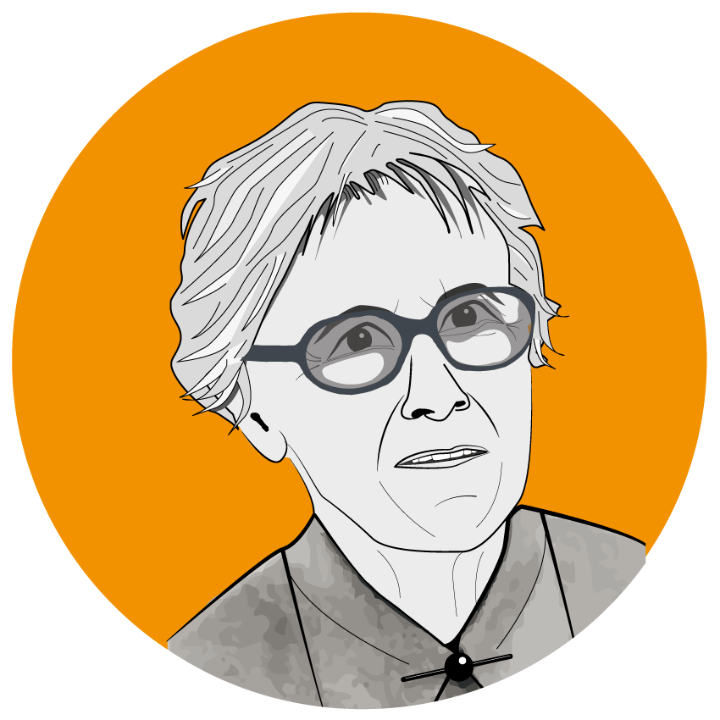Dorthe Wildenschild, professor at the College of Engineering of the Oregon State University (USA), will give the Anneliese Niethammer Lecture of the winter semester 2021 on 2 March. She will talk about: "Contact Angle Hysteresis in Multi-Phase Flow".
Speaker: Prof. Dorthe Wildenschild, Oregon State University (USA)
Title: „Contact Angle Hysteresis in Multi-Phase Flow”
Date: 2 March 2021
Time: 4:00 pm CET
Place: The lecture will be a virtual lecture
Registration: we kindly ask for prior registration via e-mail: >>> katharina.heck@iws.uni-stuttgart.de.
Abstract
Multi-phase flow in porous media (rocks, soils) is an important area of study due to its relevance in environmental remediation, CO2 sequestration, and oil production - among others. Capillary pressure, saturation, and interfacial area are some of the parameters typically used to describe these flow processes theoretically and numerically. Yet, multi-phase flow – and these measures - are affected by the wettability state of the porous medium, which in turn can be evaluated using measurements of fluid-fluid interfacial curvature and contact angle.
To better understand the effects of wettability state and contact angle hysteresis on multi-phase flow processes, we measured contact angles across saturations and during drainage/imbibition cycles to track wettability states and explore the extent of contact angle hysteresis. Synchrotron-based x-ray computed microtomography was used to generate high-resolution, three-dimensional observations of multiphase fluid transport in porous media. Contact angles measurement was based on a modified version of the code developed by Scanziani et al. (2017).
Together, these image-based measurements provide new important insights regarding wettability states, as well as the presence of advancing and receding contact angles. Preliminary results suggest noteworthy contact angle hysteresis for oil-water fluid-pairs in water-wet systems, while the air-water equivalent displays little to no contact angle hysteresis across the saturation ranges investigated.
(Dorthe Wildenschild1, Diba Behnoudfar1, Rebecca Paustian1, Douglas Meisenheimer1, and Maria Dragila2 1School of Chemical, Biological, and Environmental Engineering, 2Dept. of Crop and Soil Science, Oregon State University, Corvallis, Oregon, USA)
About Dorthe Wildenschild
Dorthe Wildenschild is a professor of environmental engineering at the College of Engineering of the Oregon State University (USA) with research focused on flow and transport in porous media, addressing research questions about subsurface water pollution and energy-related storage. Recent work includes the optimization of geologic storage of anthropogenic CO2 in subsurface reservoirs; exploration of colloid-facilitated transport of contaminants in groundwater; microbial enhanced oil recovery; and investigations in support of more effective groundwater remediation techniques. She is currently the PI for an NSF-funded instrument development that will bring a state-of-the-art 3D imaging facility to OSU this coming spring. She received her Ph.D. and M.S. in Civil and Environmental Engineering from Danish Technical University.
Dorthe Wildenschild is currently the associate dean of graduate programs, where she provides leadership and input for the vision, direction, and coordination of the College of Engineering’s graduate academic programs, initiatives, and policies. In addition to long-term strategic planning, she also implements college and university-wide policies that affect the academic studies and well-being of engineering graduate students. Prior to her leadership role with the College of Engineering administration, Dorthe served as an Associate Dean for the Graduate School.




